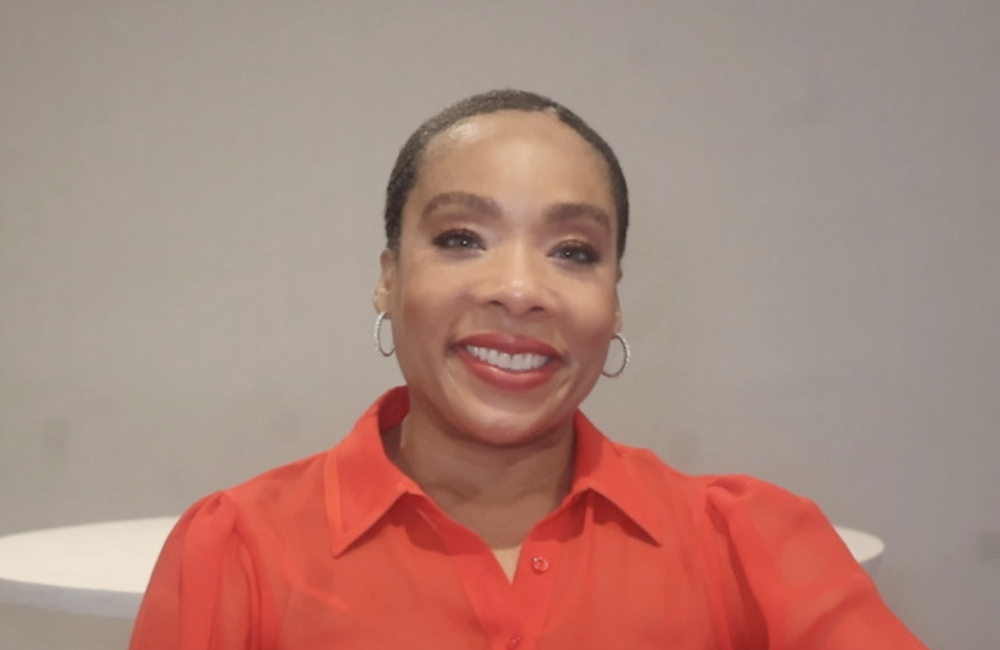Billionaire entrepreneur and Uncle Nearest, Inc. CEO Fawn Weaver captured hearts and minds at Florida A&M University’s Spring 2025 commencement with a profound keynote address that earned her a standing ovation. Weaver presented five life-changing lessons focused on identity, purpose and divine guidance to the graduating Class of 2025, leaving an indelible impression on all in attendance.
The ceremony showcased exceptional Black leadership with Weaver joined by fellow speakers Adrienne Brown, group vice president at Eli Lilly, and Bernard W. Kinsey, co-founder of the renowned Kinsey African American Art and History Collection. While each speaker brought valuable insights, Weaver’s deeply personal and faith-infused message created a particularly powerful connection with the graduates and their families.
Personal narrative sets foundation for success principles
Weaver opened her address by sharing the compelling story of her father, Frank Wilson, a Motown songwriter who overcame formidable challenges on his path to success. This authentic introduction established immediate credibility and emotional resonance as she transitioned into her first key lesson: rejecting limiting labels.
She emphasized that people of color and women collectively represent the majority of the global population, challenging graduates to resist internalizing the “minority” designation. This reframing invited students to view themselves not as marginalized individuals but as essential members of the predominant human family with limitless potential for impact and leadership.
Heritage as source of resilience and strength
The second principle Weaver presented centered on ancestral resilience and genetic inheritance of fortitude. She referenced the brutal history of the Transatlantic Slave Trade, noting that today’s African American graduates descend from individuals whose extraordinary strength enabled their survival.
This acknowledgment of historical trauma transformed into an empowering message about inherent capability. By connecting graduates to their lineage of survivors, Weaver instilled a profound sense of responsibility to honor their ancestors through continued excellence and perseverance in the face of contemporary challenges.
Breaking free from self-imposed limitations
Weaver’s third lesson employed the vivid metaphor of “fleas in a jar” to illustrate how self-imposed boundaries often become the greatest obstacles to achievement. She described how fleas conditioned to remain within artificial constraints will maintain those limitations even after barriers are removed – a powerful parallel to societal conditioning that can restrict human potential.
To counteract this phenomenon, she highlighted trailblazers like Oprah Winfrey and Tyler Perry as examples of individuals who refused to accept artificial ceilings on their ambitions. These concrete examples reinforced her message that transcending perceived limitations requires first recognizing their existence and then deliberately choosing to move beyond them.
Divine purpose eliminates imposter syndrome
Perhaps most impactful was Weaver’s fourth principle addressing belonging and purpose. She dismissed the concept of imposter syndrome for those operating within their divine calling, asserting that divine placement eliminates any question of legitimacy or worthiness.
This faith-based perspective offered graduates a powerful framework for navigating professional environments where they might feel marginalized or questioned. By anchoring their presence in these spaces to divine purpose rather than external validation, Weaver provided a psychological foundation for confidence that transcends circumstantial challenges or societal biases.
Faith as ultimate foundation for achievement
Weaver concluded with an unambiguous declaration of faith: “If God be for you, then who can be against you?” This biblical reference served as both culmination and foundation for her entire message, establishing divine support as the ultimate source of confidence regardless of political climate or societal obstacles.
The certainty with which she delivered this principle underscored her personal commitment to faith-guided leadership, modeling for graduates how spiritual conviction can provide stability amidst professional challenges and societal fluctuations.
Embodying the message through personal achievement
Weaver’s counsel carries exceptional weight given her remarkable personal journey as one of only five Black women leading billion-dollar companies in the United States. Since launching Uncle Nearest in 2016, she has transformed it into America’s fastest-growing whiskey brand and the best-selling Black-founded spirit brand according to Forbes.
Her achievements extend beyond business into publishing and public speaking, with two New York Times bestselling books and a notable TED talk to her credit. This diverse portfolio of success makes her a compelling exemplar of the principles she shared with FAMU graduates.
FAMU’s commitment to representative leadership
The university’s selection of Weaver alongside Brown and Kinsey reflects FAMU‘s dedication to showcasing diverse Black leadership across industries. This intentional representation provides graduates with tangible evidence that their aspirations, regardless of field, have been achieved by individuals who share their heritage and understand their journey.
As Weaver emphasized throughout her address, legacy building begins immediately – not as a distant future consideration but as an active process that commenced the moment graduates received their diplomas. This perspective transforms commencement from merely a conclusion of academic studies into the beginning of conscious legacy creation.
The impact of Weaver’s address extended beyond inspirational rhetoric to provide graduates with actionable philosophy for navigating professional challenges while maintaining personal authenticity. As FAMU’s Class of 2025 transitions into their respective fields, Weaver’s principles offer a framework for leadership that honors both heritage and divine purpose while pursuing excellence without apology or limitation.

















